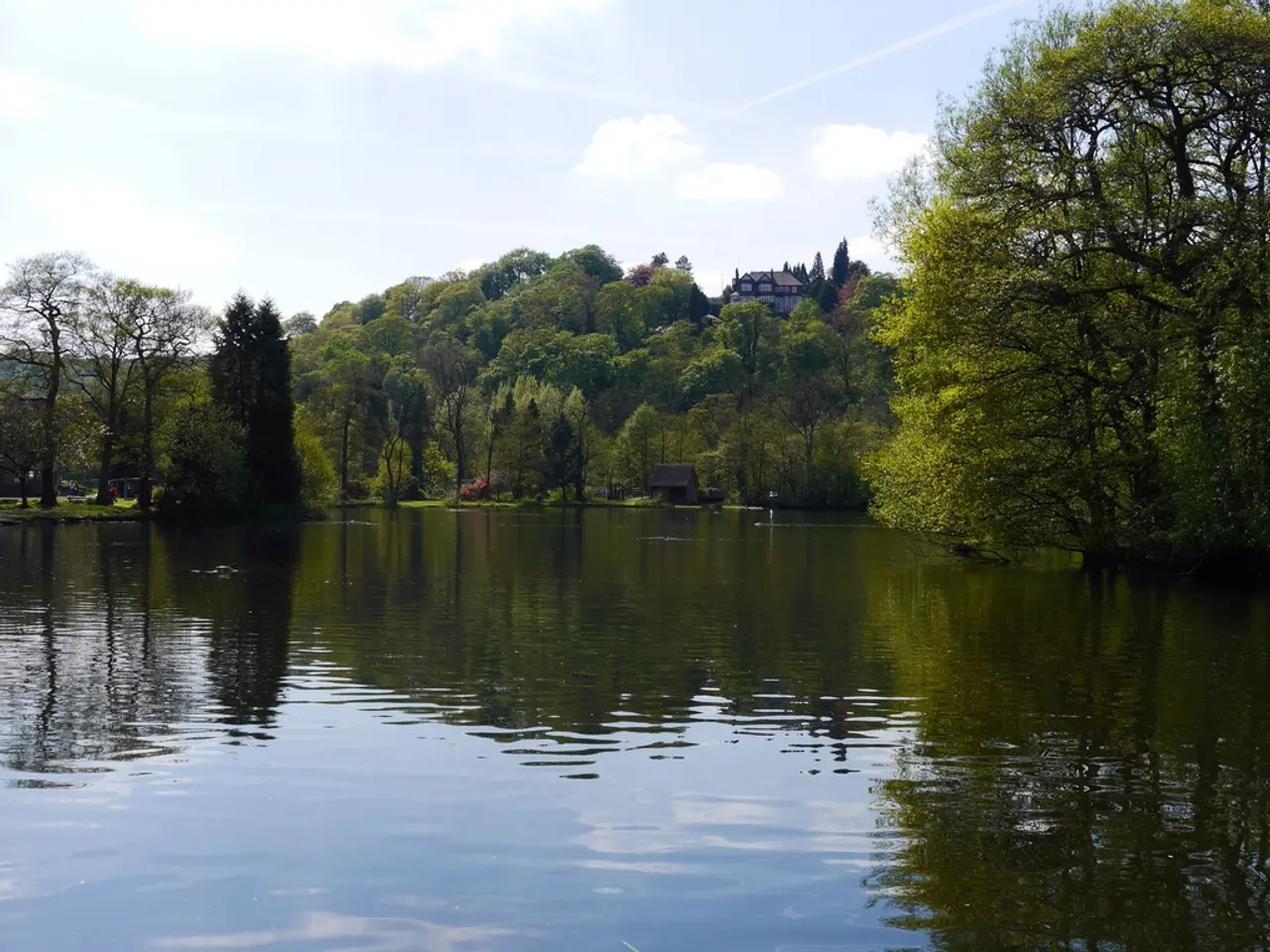Catastrophic floods occur at Alaska's Mendenhall Glacier due to an abrupt release of water from a glacier lake
Record Flooding Hits Juneau, Alaska: Mendenhall Glacier's Suicide Basin Releases Water
Juneau, Alaska, faced a significant flood event in August 2025, as the Mendenhall Glacier's Suicide Basin released a massive amount of water, causing the Mendenhall River to rise to unprecedented levels.
Authorities had been closely monitoring the situation, and evacuation warnings were issued before the peak flood stage. Residents were urged not to wait but to evacuate quickly due to the imminent risk.
On the morning of August 13, flood waters peaked early, with the National Weather Service noting the peak around 7–8 a.m. local time. The Mendenhall River reached a major flood stage at 16.51 feet, surpassing the record flood stage set in 2024 of 15.99 feet.
This catastrophic flooding was not unexpected, as scientists had warned that these glacial lake outburst floods could continue for the next 25 to 60 years due to the Mendenhall Glacier acting as an ice dam sealing off the basin.
The emergency services were activated to coordinate the response and provide public safety messaging. Flood control barriers had been installed in the area prior to this event to help mitigate the impacts.
The U.S. Geological Survey scientists actively monitored the ongoing flooding caused by the water released from Suicide Basin’s glacier-dammed lake. The event was well-documented, with footage showing high waters on the Mendenhall River and debris flowing downstream, illustrating the flood’s severity.
This was not the first time Juneau had experienced such flooding. In 2024, record-breaking flooding from Suicide Basin had already caused damage to nearly 300 homes.
Globally, glaciers are at risk of significant ice loss due to climate change, and this event is a stark reminder of the consequences. Between 2000 and 2023, glaciers around the world lost an estimated 7,211 billion tons of ice, with the rate of ice loss having increased by about 36% in the past two decades.
Alaska, specifically, has warmed twice as fast as any U.S. state over the last several decades. This rapid warming has contributed to the steep decline in Alaskan glaciers since the late 1980s.
As the world grapples with climate change, events like the Mendenhall Glacier's outburst flood serve as a grim reminder of the potential hazards that lie ahead. Even if warming were to stabilize at current levels, the world's glaciers would still likely lose at least 39% of their mass.
Residents in Juneau and similar areas must remain vigilant and heed evacuation orders when issued. The National Weather Service in Juneau continues to monitor water levels at Suicide Basin, and residents are advised to stay informed and prepared.
[1] National Weather Service, Juneau, AK. (2025). Mendenhall Glacier's Suicide Basin releases water, causing record flooding in Juneau. Retrieved from www.weather.gov/jnu
[2] City of Juneau. (2025). Emergency evacuation orders issued due to record flooding. Retrieved from www.cityandcounty.juneau.ak.us
[3] U.S. Geological Survey. (2025). Monitoring ongoing flooding caused by Suicide Basin release. Retrieved from www.usgs.gov/juneau
[4] Alaska Public Media. (2025). Video footage shows severity of Mendenhall River flooding. Retrieved from www.akpublicmedia.org
[5] State of Alaska Emergency Operations Center. (2025). Activated to coordinate response to record flooding. Retrieved from www.alaska.gov/decd
- The international community should pay close attention to the climate-change induced impacts on the environment, such as the Mendenhall Glacier's outburst flood in Juneau, Alaska, as it serves as a grim warning of potential hazards that lie ahead.
- In the realm of environmental-science, glaciers are vital indicators of climate change, and it is of utmost importance to study their behavior to predict future events and mitigate their effects on health-and-wellness.
- In the wake of these extreme climate events, governments at all levels, including politics, must prioritize funding for weather forecasting and flood control infrastructure to ensure public safety and minimize property damage.
- The escalating rate of climate change-induced ice loss in glaciers, like the one at Mendenhall, necessitates expediency in the implementation of health-and-wellness policies that adapt to these changes, as well as scientific research to understand the consequences.
- Residents in areas affected by climate change should be aware of their surroundings and stay up-to-date on science-based information regarding the local climate and weather conditions, as this knowledge can save lives in the event of climate-change related disasters.




